What is the best way to get rid of aphids in my garden? Effective Tips and Techniques for a Healthy Garden
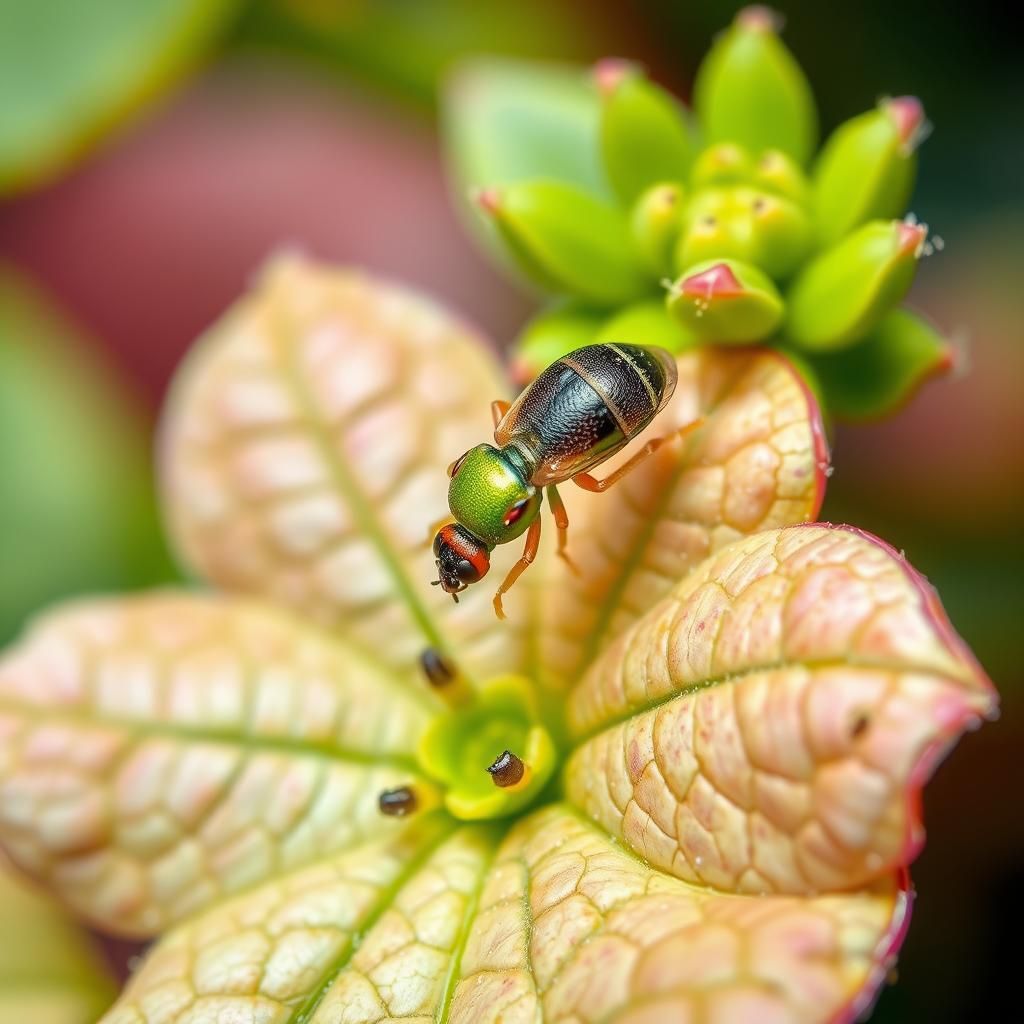
Aphids can quickly turn a thriving garden into a struggling one, sucking the lifeblood out of your plants and spreading diseases. Identifying the best methods to eliminate these pests is crucial for maintaining a healthy garden. This article explores effective tips and techniques for combating aphids, from natural remedies to chemical treatments. By implementing these strategies, you can protect your plants, promote biodiversity, and ensure your garden flourishes. Whether you’re a seasoned gardener or a newcomer, understanding how to manage aphid infestations will empower you to create a vibrant, pest-free outdoor space.
Effective Methods for Eliminating Aphids in Your Garden
To effectively get rid of aphids in your garden, it’s important to use a combination of methods that can address the infestation while being safe for your plants and the environment. Start by introducing natural predators such as ladybugs and lacewings, which feed on aphids. You can also use insecticidal soap or a homemade solution made of water mixed with a few drops of dish soap to directly spray the affected plants, suffocating the aphids. Additionally, consider employing strong jets of water to dislodge them from the foliage. Regular monitoring and early intervention are key, as aphid populations can grow rapidly if left unchecked.
Natural Predators
Introducing natural predators like ladybugs and parasitic wasps can be an efficient way to control the aphid population in your garden. These beneficial insects prey on aphids, helping to keep their numbers in check. Planting flowers that attract these predators, such as marigolds and yarrow, can further enhance their presence and effectiveness in combating aphid infestations.
Insecticidal Soap
Insecticidal soap is a safe and effective method for controlling aphids. This solution works by suffocating the insects on contact, which reduces their population significantly. To use it, mix a few drops of liquid soap (not detergent) in water and spray it directly onto the aphids. Be sure to thoroughly coat the undersides of leaves, where aphids often reside, and repeat the application every few days until the problem is resolved.
Homemade Remedies
Creating homemade remedies can also be an effective strategy against aphids. A popular mixture involves using garlic or pepper sprays, which are known to repel pests due to their strong odor. To make your own spray, blend garlic or chili peppers with water, strain the mixture, and apply it to the plants. The pungent scent acts as a deterrent, discouraging aphids from settling on your plants.
Water Spray Method
Using a strong water spray can provide an immediate solution to aphid infestations. Simply direct a jet of water towards the infested plants, focusing on the areas where aphids tend to gather, such as the undersides of leaves and new shoots. This method not only dislodges aphids but also helps remove any sticky residue they leave behind, which can encourage the growth of sooty mold.
Regular Monitoring
Maintaining regular monitoring of your plants is crucial in preventing aphid outbreaks. Check your garden frequently for signs of aphids and their damage, such as curled leaves or sticky substances. Early detection allows for prompt treatment, making it easier to control aphid populations before they escalate into a larger issue.
| Method | Description | Effectiveness |
|---|---|---|
| Natural Predators | Introduce insects like ladybugs to consume aphids. | High |
| Insecticidal Soap | Spray soap solution to suffocate aphids. | Moderate to High |
| Homemade Remedies | Use garlic or pepper sprays to repel aphids. | Moderate |
| Water Spray | Blast aphids off plants with a strong water jet. | Effective |
| Regular Monitoring | Frequently check plants for early signs of infestation. | Essential |
What is the fastest way to kill aphids?
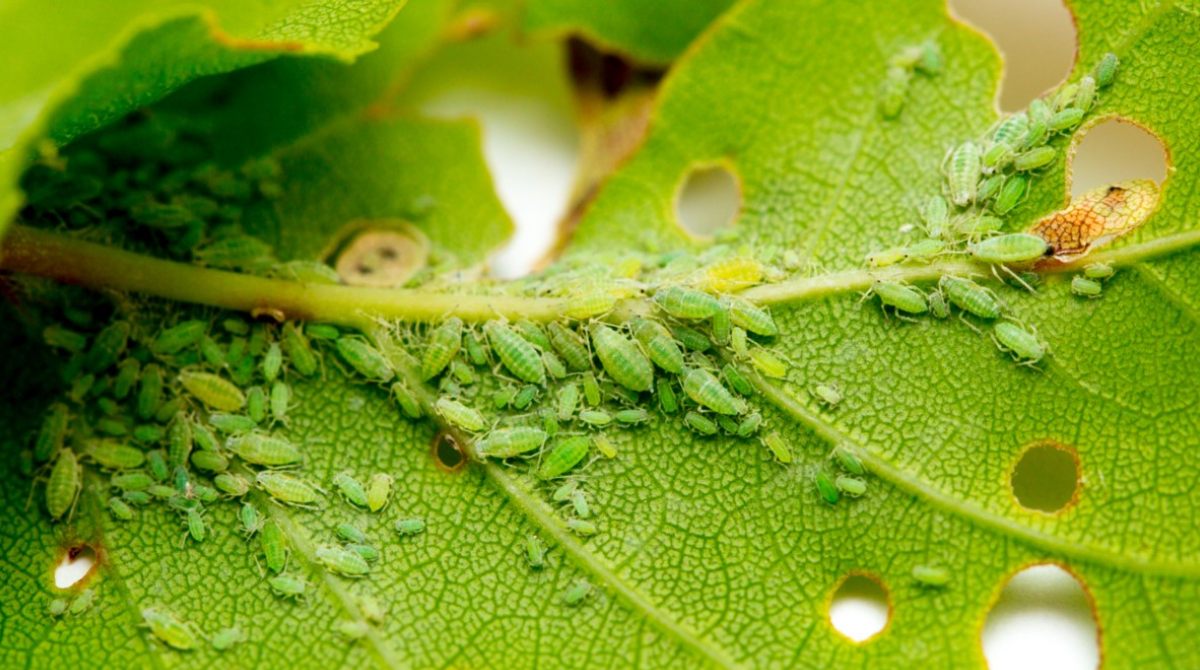
The fastest way to kill aphids involves a combination of mechanical removal, natural predators, and chemical treatments. Below are several effective methods with detailed explanations:
Direct Water Spray
One of the quickest methods to eliminate aphids is by using a strong jet of water. This method is effective because it can physically dislodge aphids from the plants.
- Pressure: Use a garden hose with a nozzle to create a powerful spray.
- Timing: Apply the water early in the morning or late in the evening to avoid harming the plant.
- Repeat: Check the plants every few days and repeat the process as necessary.
Insecticidal Soap
Insecticidal soaps are a fast-acting solution that targets soft-bodied insects like aphids. They work by suffocating the insects and disrupting their cell membranes.
- Formulation: Buy a commercially available insecticidal soap or mix your own using 2-3 tablespoons of dish soap in a gallon of water.
- Application: Spray the affected plants thoroughly, ensuring coverage on the undersides of leaves.
- Timing: Apply during cooler parts of the day to prevent burning the plants.
Natural Predators
Introducing natural predators is an effective way to control aphids quickly. Ladybugs and lacewings are two common predatory insects that feed on aphids.
- Ladybugs: Release ladybug larvae or adults near aphid-infested plants for a rapid reduction in aphid populations.
- Lacewing Eggs: Purchase and release lacewing eggs in your garden as they hatch and feed on aphids.
- Maintaining Habitat: Plant flowers that attract these beneficial insects to promote a balanced ecosystem.
Neem Oil Treatment
Neem oil is a natural pesticide that disrupts the life cycle of aphids and can kill them quickly when applied correctly. It has both repellent and curative properties.
See also: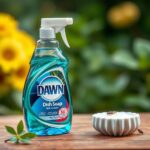
- Solution: Dilute neem oil according to the package directions and mix it with water.
- Application: Spray the diluted solution directly onto infested plants, covering all surfaces.
- Frequency: Apply every 7-14 days until the aphid population is under control.
Chemical Pesticides
For severe infestations, chemical pesticides may be necessary for fast results. Choose products specifically labeled for aphid control.
- Selection: Look for systemic insecticides that penetrate the plant and kill aphids feeding on it.
- Follow Directions: Always adhere to the manufacturer’s instructions for safe and effective use.
- Environmental Considerations: Be mindful of the impact on beneficial insects and use as a last resort.
What do aphids hate the most in the garden?
:max_bytes(150000):strip_icc()/Aphid-0811e23fa37b41aea2e4c7bee5025bf6.jpg)
Aphids are small sap-sucking insects that can be highly destructive to garden plants. To effectively keep aphids at bay, it is essential to understand what they dislike the most. Here are some methods that can help deter these pests.
1. Strong Scented Herbs
Aphids are repelled by the strong scents of certain herbs. Planting these herbs in your garden can create a natural barrier against aphids.
- Lavender: Its aromatic presence is known to ward off aphids.
- Mint: The strong minty aroma can confuse and deter aphids.
- Chives: These have a pungent scent that aphids find unappealing.
2. Neem Oil
Neem oil, derived from the seeds of the neem tree, is a potent natural pesticide that aphids hate. It disrupts their life cycle and can effectively reduce their populations.
- Inhibits reproduction: Neem oil prevents aphids from breeding effectively.
- Makes plants unappetizing: The oil can make the plants taste bad to aphids.
- Harms aphids upon contact: Direct contact with neem oil can kill aphids.
3. Insecticidal Soap
Insecticidal soap is another effective deterrent against aphids. This solution works by suffocating the pests and disrupting their cell membranes.
- Easy to apply: Can be easily sprayed on affected plants.
- Non-toxic: Safe for beneficial insects when used correctly.
- Effective against soft-bodied insects: Aphids are particularly vulnerable to this treatment.
4. Companion Planting
Companion planting involves growing specific plants together to enhance growth and ward off pests. Some plants can naturally repel aphids.
- Marigolds: Known for their ability to repel various garden pests including aphids.
- Garlic: Its strong scent can deter aphids from colonizing.
- Nasturtiums: These can attract aphids away from other plants.
5. Introduce Beneficial Insects
Certain beneficial insects can help control aphid populations. Introducing these insects into your garden can create a natural balance.
- Ladybugs: They feed on aphids and can significantly reduce their numbers.
- Lacewings: Their larvae are effective predators of aphids.
- Parasitic Wasps: These wasps lay eggs inside aphids, effectively controlling their populations.
Do banana peels really work for killing aphids?
Banana peels have gained popularity as a natural remedy for various gardening challenges, particularly for deterring pests such as aphids. However, the effectiveness of banana peels for killing aphids specifically is a topic of debate among gardeners and researchers.
Banana peels are rich in nutrients, including potassium, phosphorus, and calcium, which can benefit plants when they decompose. While they may not be directly toxic to aphids, the compounds in banana peels can aid in repelling these pests or attracting beneficial insects that prey on them. Moreover, the scent of banana peels might deter some aphids, but there is limited scientific evidence to support the idea that they are an effective aphid killer.
Understanding Aphid Infestation
Aphids are small, soft-bodied insects that feed on the sap of plants. They are known for their rapid reproduction, making them a significant concern for gardeners. Understanding their lifecycle and patterns of infestation is crucial for effective control measures.
- Aphids reproduce quickly, often giving birth to live young.
- They can form large colonies on plant stems and leaves, causing deformities and stunted growth.
- Aphids also excrete a sticky substance called honeydew, which can lead to sooty mold.
Banana Peels: Nutritional Benefits for Plants
Banana peels are packed with essential nutrients that can promote healthy plant growth. When used in compost or as a soil amendment, they can enhance the nutrient profile of the garden soil.
See also:
- Rich in potassium, aiding in root development and overall plant health.
- Phosphorus promotes flowering and fruiting, making it beneficial for fruiting plants.
- Calcium strengthens plant cell walls, potentially helping plants resist some pests.
How to Use Banana Peels in the Garden
To utilize banana peels effectively in the garden, there are several methods that gardeners can adopt. These practices aim to enhance soil health and possibly deter aphids.
- Chop banana peels and bury them in the soil around plants.
- Blend banana peels with water to create a liquid fertilizer and apply it to plants.
- Place peels directly in compost piles for added nutrients and microbial activity.
Companion Plants and Natural Predators
In addition to using banana peels, employing companion planting strategies can help manage aphid populations effectively. Certain plants can attract beneficial insects that feed on aphids.
- Planting marigolds can deter aphids while attracting ladybugs.
- Coriander and dill can attract hoverflies, which are natural predators of aphids.
- Nasturtiums can act as sacrificial plants, attracting aphids away from more valuable crops.
Limitations of Using Banana Peels Against Aphids
While banana peels may offer some benefits, there are limitations to their effectiveness as a direct method of killing aphids. Understanding these limitations can help gardeners set more realistic expectations.
- There is no scientific evidence directly linking banana peels to definitive aphid control.
- Over-reliance on banana peels without other integrated pest management strategies may lead to ineffective results.
- Effective aphid control often requires a combination of methods, including biological, cultural, and chemical controls.
What can I spray on my plants to kill aphids?
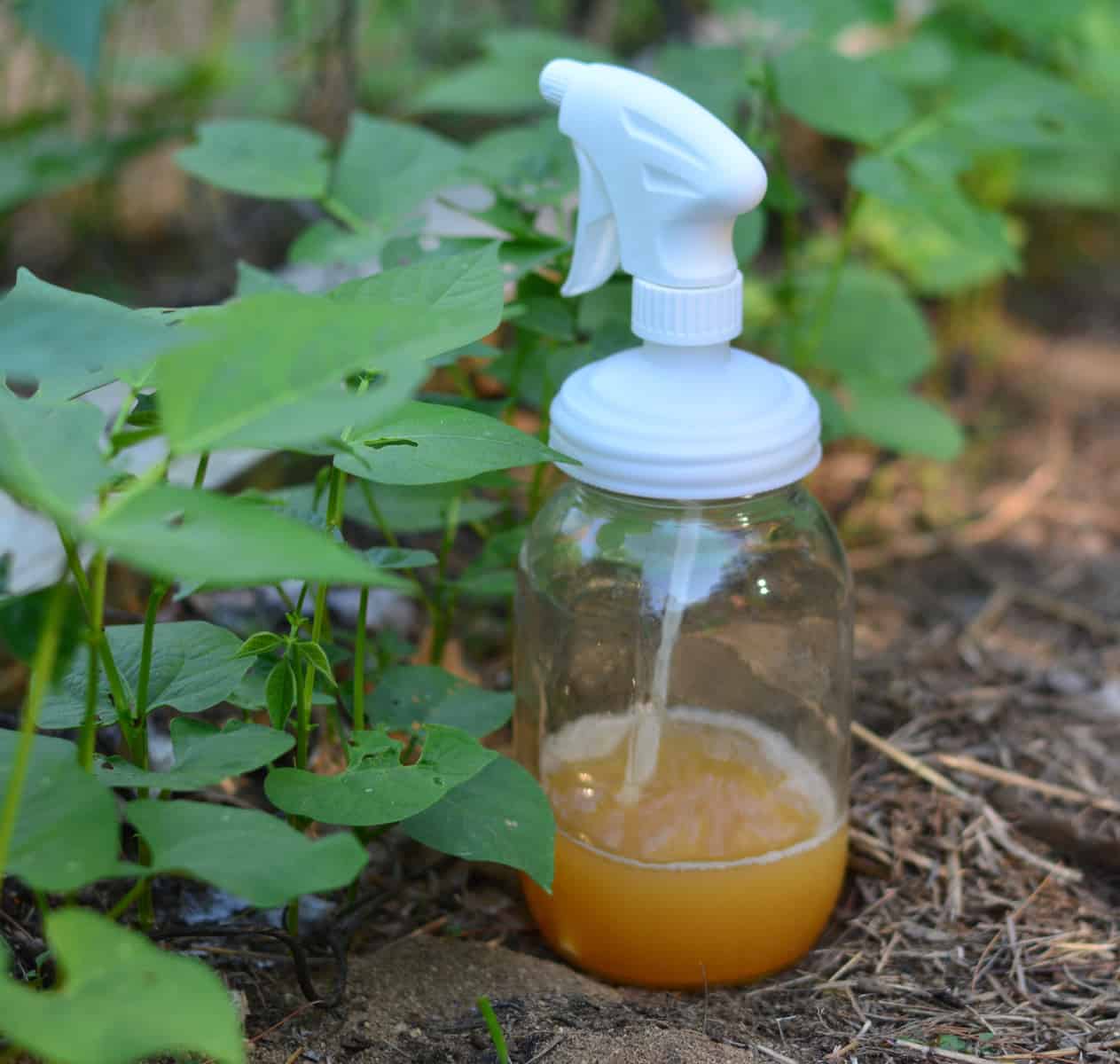
To effectively control and eliminate aphids on your plants, there are several sprays that can be utilized. Here are some options:
- Insecticidal Soap: This is a popular option among gardeners. It works by suffocating the aphids and disrupting their cell membranes.
- Neem Oil: Derived from the seeds of the neem tree, this natural pesticide disrupts the lifecycle of aphids and repels them.
- Horticultural Oil: This oil coats the aphids and prevents them from breathing, ultimately leading to their demise.
- Garlic Spray: A homemade solution that combines crushed garlic and water can repel aphids due to its strong smell.
- Dish Soap Solution: A simple mix of water and a few drops of dish soap can effectively kill aphids when sprayed directly on them.
Insecticidal Soap
Insecticidal soap is a widely used method for aphid control. It is safe for most plants and does not leave harmful residues. The soap works by penetrating the outer shells of the aphids, causing dehydration and death. To use it effectively:
- Choose a commercial insecticidal soap or make your own by diluting pure soap in water.
- Apply the solution directly onto the aphids, ensuring complete coverage of the affected areas.
- Reapply every week or after rainfall for continued protection.
Neem Oil
Neem oil is another effective solution for managing aphid populations. Its active compounds disrupt the insects’ hormonal systems, preventing them from feeding and reproducing. When using neem oil:
- Mix neem oil with water according to the product instructions.
- Spray it on the affected plants in the early morning or late evening to avoid direct sunlight, which can degrade the oil.
- Repeat the application every 7 to 14 days for optimal results.
Horticultural Oil
Horticultural oil is a refined petroleum product that suffocates aphids and other pests. This method is particularly effective against soft-bodied insects like aphids because it is non-toxic to plants and beneficial insects. To use horticultural oil:
- Dilute the oil according to the manufacturer's guidelines.
- Ensure the plants are well-watered before application to prevent oil from burning the leaves.
- Apply the spray evenly across the foliage, particularly where aphids are concentrated.
Garlic Spray
Garlic spray is a natural repellent that can also deter aphids. The strong smell of garlic is unappealing to these pests, making it an effective method for prevention and control. For making garlic spray:
- Crush several garlic cloves and mix in water, letting it steep for 24 hours.
- Strain the mixture to remove solid pieces, then pour the liquid into a spray bottle.
- Spray on affected plants every few days or after rain to maintain effectiveness.
Dish Soap Solution
A simple dish soap solution can be very effective in killing aphids. The soap disrupts the protective outer layer of the aphids, causing them to dehydrate. To prepare this solution:
- Add a few drops of mild dish soap to a spray bottle filled with water.
- Shake well and test on a small area of the plant first to ensure it does not harm the foliage.
- Apply the solution directly to the aphids, ensuring thorough coverage, and repeat every few days if necessary.
Questions from Our Readers
What are aphids and why are they a problem in my garden?
Aphids are small, soft-bodied insects that feed on the sap of plants, which can weaken the plants and cause stunted growth. They can also transmit plant diseases and attract other pests, making them a significant problem for gardeners.
What are some natural methods to get rid of aphids?
Some effective natural methods include introducing beneficial insects like ladybugs and lacewings, using insecticidal soap, or making a homemade spray of water and dish soap. These methods can help control aphid populations without harming the environment.
See also: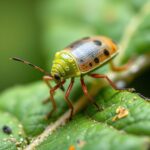
How can I prevent aphids from infesting my garden?
To prevent aphids, consider planting companion plants that repel them, such as marigolds or garlic, and regularly check your plants for early signs of infestation. Maintaining healthy plants through proper watering and fertilization will also make them less attractive to aphids.
Are there chemical treatments available for aphid control?
Yes, there are various chemical treatments available, including systemic insecticides that are absorbed by the plants or contact insecticides that kill aphids on contact. However, it's essential to use these products cautiously to avoid harming beneficial insects and the environment.

If you want to read more articles like What is the best way to get rid of aphids in my garden? Effective Tips and Techniques for a Healthy Garden, we recommend you check out our Insects category.
Leave a Reply

Related Articles